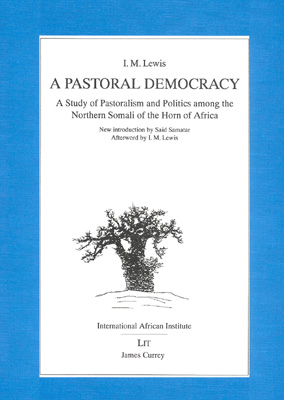Beschreibung
First published in 1961, shortly after establishment of the
independent Somali Republic, the first step towards the
formation of a `Greater Somalia‘, brought this North-East
African Muslim nation a prominence which it had not enjoyed
since the British campaigns against the `Mad Mullah‘ in the
first two decades of the twentieth century. Somali
nationalism, however, cannot be properly understood without
a knowledge of the indigenous social organization. This
study by a social anthropologist describes the political
system of the Northern Somali nomads in their arid
ecological setting, where competition for access to water
and pasture, especially in the dry season, is acute and
leads to frequent and often long-drawn-out feuds. In this
warlike society political status depends very largely on
numerical strength. Political loyalties based on kinship are
organized through a form of Social Contract which
distinguishes the pastoral Somali political system from
otherwise similar political structures. Today this
traditional organization is being challenged in areas where
cultivation has recently been adopted, and in towns which
are the foci of modern developments. Somali nationalism,
drawing much of its strength from the unifying force of
Islam, is an important factor. With the continued dedication
of the majority of the population to pastoral nomadism,
however, traditional clan and contractual loyalties
inevitably play an important part in party politics. This
analysis has proved to be of interest not only to
anthropologists and Africanists, but also to students of
Islamic society and of comparative political institutions.
This new edition has an introduction by Professor Said S. Samatar
of Rutgers University and a new Afterword by
Professor I. M. Lewis.


